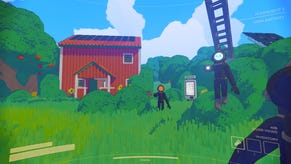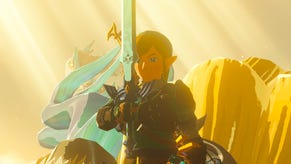UK games industry
More nerds needed, says TIGA, following release of A-level results.
TIGA said today that while the increase in entries for art and design, mathematics, further mathematics and physics at A-Level was encouraging, the continuing decline in computing entries was worrying. TIGA also said that the relatively low proportion of females taking A-Level computing, where less than 10% of entrants were female, restricts the potential supply of people available to work in the games development industry.
A-Level results for 2010 show:
An increase of 4,026 entries for mathematics (and an decrease of 0.4 per cent at grade A or above, with 17.2% gaining the new A* grade); An increase of 1,209 entries for further mathematics (and an improvement of 0.7 per cent at grade A or above with 29.9% gaining the new A* grade); An increase of 1,540 entries for physics (with an improvement of 0.9 per cent at grade A or above with 10.3% gaining the new A* grade); An increase of 215 entries for art and design (with an improvement of 0.1 per cent at grade A or above with 13.3% gaining the new A* grade); and A fall in entries for computing of 645 (with an increase of 0.6 per cent at grade A or above with 3.5% gaining the new A* grade). Males remain significantly more likely to study subjects such as mathematics and computing. 45,737 males took A-Level maths compared to 31,264 females. 3,704 males took A-Level computing compared to just 361 females.Commenting on the 2010 A-Level results, Richard Wilson, TIGA CEO, said:
“Computer games developers need gifted people with a mastery of subjects such as physics, art, mathematics and computing. It is encouraging to see increases in A-Level entries for some of these subjects, but the continuing decline in entries for computing is disappointing.”
“The games development sector is suffering a skills shortage. The Government needs to encourage greater numbers to study these subjects through measures such as lower tuition fees for computer science and mathematics degree courses.”
“The under-representation of females in disciplines such as computing also limits the potential supply of skilled computer scientists available for work in the games industry. Males are more than ten times more likely than females to take A-Level computing. In the long term, this gender imbalance contributes to the skills shortage problem.”
Ends
About TIGA:
TIGA is the trade association representing the UK’s games industry. The majority of our members are either independent games developers or in-house publisher owned developers. We also have games publishers, outsourcing companies, technology businesses and universities amongst our membership. TIGA was awarded ‘Trade Association of the Year’ and the ‘Member Recruitment Award’ at the Trade Association Forum Best Practice Awards 2010.
TIGA's vision is to make the UK the best place in the world to do games business. We focus on three sets of activities: political representation, generating media coverage and developing services that enhance the competitiveness of our members. This means that TIGA members are effectively represented in the corridors of power, their voice is heard in the media and they receive benefits that make a material difference to their businesses, including a reduction in costs and improved commercial opportunities.
For further information, please contact Eva Field, TIGA PR Manager on: 07814 039 983, or email eva@tiga.org.








